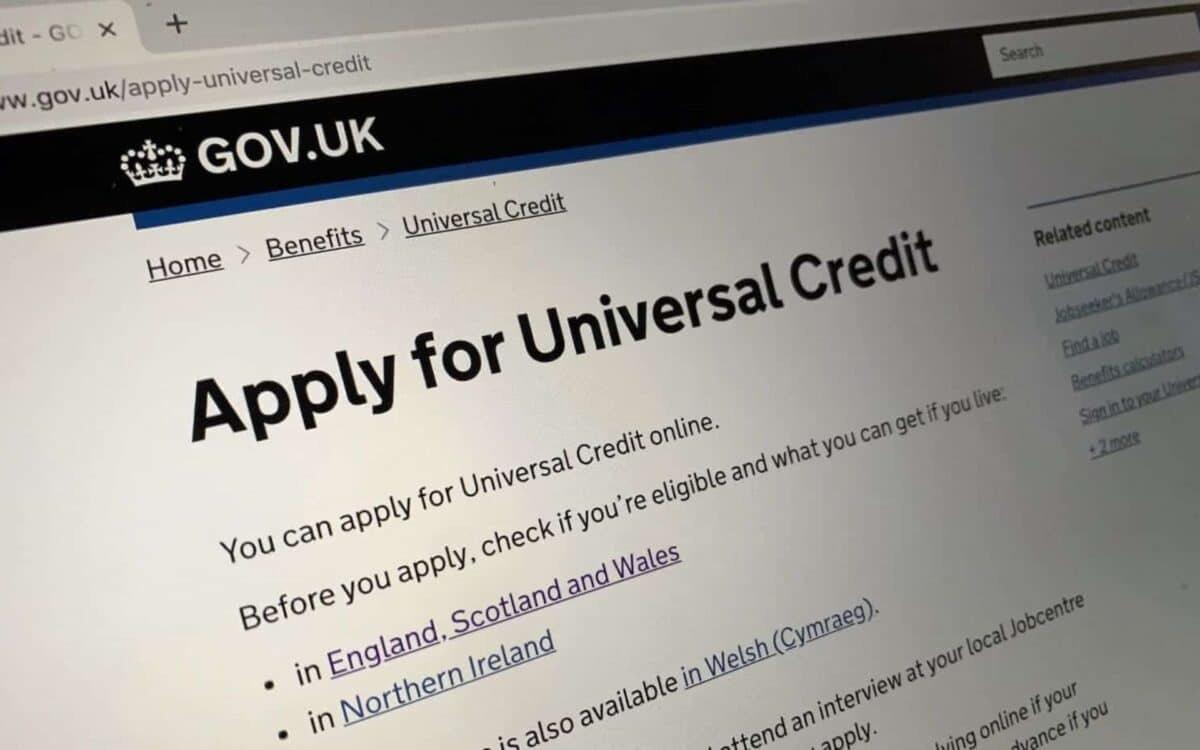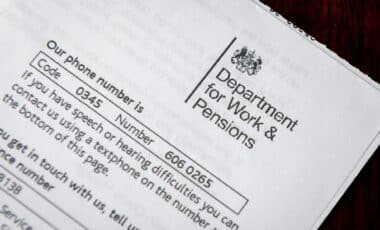A number of changes to Universal Credit have been introduced throughout May 2025, affecting millions of claimants across the UK through adjustments to payment schedules, deduction limits, income thresholds, and specific support components.
These developments are part of a wider reform strategy by the Department for Work and Pensions (DWP) aimed at phasing out older benefit systems and encouraging financial stability among low-income households.
According to DevonLive, the updates are particularly relevant as the government accelerates the transition from legacy benefits, ahead of major welfare changes set to take effect in 2026, reshaping how support is structured and delivered nationwide.
Universal Credit Claimants Reach 7.6 Million, With Birmingham at the Top
As of March 2025, 7.6 million people are now claiming Universal Credit. Of these, 35% are in employment, while the rest are either seeking work or exempt from work requirements. The city of Birmingham accounts for the largest number of recipients in any UK local authority, with over 226,000 claimants.
This continued rise is largely attributed to the managed migration of individuals from older benefit schemes such as Income Support, Jobseeker’s Allowance (JSA), and Employment and Support Allowance (ESA).
Universal Credit payments have been rescheduled around the two bank holidays in May. For the Early May Bank Holiday :
- Payments due on Saturday, May 3, Sunday, May 4, or Monday, May 5 were issued early on Friday, May 2.
For the Spring Bank Holiday :
- Payments due on Saturday, May 24, Sunday, May 25, or Monday, May 26 will be paid earlier on Friday, May 23.
These early payments prevent delays caused by non-working days at banks and DWP offices.
ESA Managed Migration Increases in Pace
The managed migration process transferring ESA claimants to Universal Credit is being accelerated. As of this month, the DWP has increased the number of Migration Notices issued monthly to 83,000.
In light of the good progress made on Employment and Support Allowance (ESA) cases to date, with over 200,000 already successfully transitioned to UC, a decision has been made to increase the volume of Migration Notices issued each month to 83,000.
This will allow a little more time before the end of March 2026 to provide support for our more vulnerable customers, and complete the migration of ESA cases to Universal Credit, with the final Migration Notices issued in September.
This accelerated process is part of the goal to complete all transitions by the end of March 2026.
Reduction of Deduction Cap Under New Fair Repayment Rate
From May 2025, the Fair Repayment Rate policy has reduced the maximum deductions from Universal Credit from 25% to 15% of the standard allowance. This is expected to positively impact about 1.2 million households, with an average gain of £35 per month or £420 per year.
Despite this cap, deductions for child maintenance can still exceed the 15% threshold for a transitional period of one year as the DWP evaluates the repayment framework’s impact.
Revised Earnings Thresholds for Claimants With Work Requirements
In response to changes in the National Living Wage, the Administrative Earnings Threshold (AET) has been updated. New thresholds are :
- £952 per month for a single claimant (previously £892, an increase of £60),
- £1,534 per month for a couple (up from £1,437, an increase of £97).
Claimants earning less than these amounts may be contacted by their Jobcentre Plus adviser to increase working hours, seek a second job, or move into higher-paying employment.
Uprating of Benefits Applies From Mid-May
The 1.7% annual uprating of Universal Credit payments started on April 7, 2025, and applies from Tuesday, May 13 onward for those whose assessment periods run from April 7 to May 6. Other recipients will receive the updated payment later in May or June, depending on their claim cycle.
Universal Credit payments are calculated based on a one-month assessment, followed by a payment issued seven days later.
Final Increase to Lcwra Benefit Before 2026 Reforms
The Limited Capability for Work and Work-Related Activity (LCWRA) element has increased to £423.27 per month, up from £416.19, starting with payments issued on or after May 13. This is the final uprating before future reforms.
From April 2026, new LCWRA awards will be reduced to half the current amount, resulting in a potential loss of £47 per week, or around £2,450 per year, compared to existing recipients. This reduced amount will remain frozen until at least the 2028–2029 financial year.
The Work Capability Assessment, which determines LCWRA eligibility, will be abolished in 2026. Instead, a new Universal Credit health element will be introduced for claimants already receiving the daily living component of Personal Independence Payment (PIP).
No New Cost of Living Payments Planned, Confirms Government
The UK government has issued a clarification regarding Cost of Living Payments :
DWP is not planning to make any more Cost of Living Payments. Find out about help you can get with the cost of living.
You may have been entitled to payments to help with the cost of living if you were getting certain benefits or tax credits on certain dates between 2022 and 2024.
This clarification comes after the spread of misinformation online suggesting further payments might be planned.
The Household Support Fund, a key support mechanism for vulnerable households, has been extended until March 31, 2026, with an additional £742 million allocated by the Department for Work and Pensions.
Local councils in England will distribute the funds, using their discretion to determine which households qualify for assistance based on local needs.









